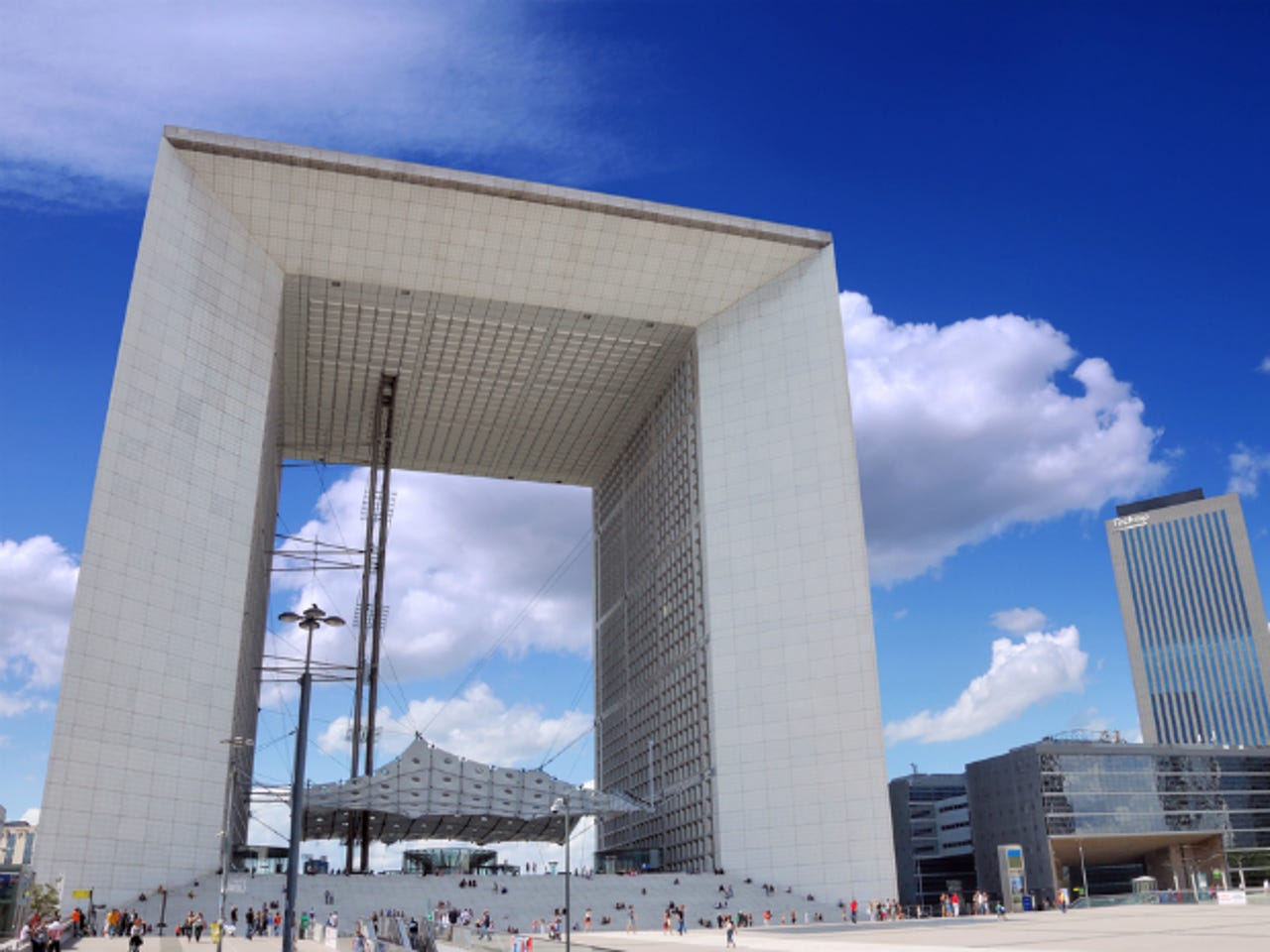Technology made in France: The ambitious plan to rejuvenate French industry with cloud and IoT


Last year Benjamin Carle, a young French journalist, set himself what seem on the surface to be a relatively easy task: to become 100 percent 'made in France'.
Carle's objective was to completely clean out his flat in Paris and fill it only with French-made food, clothes, furniture and electrical goods.
By the end of the 10-month project, Carle had almost achieved his aim and was rated 96.9 percent made in France'. However, the project cost him time, money and a lot of his valued possessions — including his smartphone, TV, refrigerator, and even music.
Tech Pro Research
The inspiration for Carle's project was a call by Arnaud Montebourg, France's minister for the economy, productivity and digital technology, for French citizens to buy French in order to bring jobs back to the country and rejuvenate local industrial production.
However, as Carle's experience shows, it's not easy to 'buy French', and indeed Carle found that some products such as French-made refrigerators just don't exist any more.
Yet Montebourg's call to become 'made in France' is part of a much wider initiative, labelled Nouvelle France Industrielle (new industrial France). France's government has pledged that this initiative will allow the country to reinvent itself and become a stronger economic and industrial powerhouse for the future.
France's big initiative
In September last year, France's president François Hollande unveiled a 10-year plan aiming to support new developments and opportunities in 34 growth sectors, including several telecoms and technology-related areas, such as the Internet of Things or connected devices.
Citing a study by US consultancy McKinsey, the aim of the around €3.5bn plan is to create 450,000 jobs over 10 years and create added value of €45bn — equivalent to 40 percent of French exports.
Montebourg said that industrial decline had destroyed 750,000 jobs in France the past 10 years.
The objective, President Hollande said, is "to build a new, competitive industrial supply capable of winning new markets", based on a pragmatic approach that relies on French values, not on values borrowed from other countries or regions.
The project is clearly only at the start of a long process, but it represents a concerted effort by France to show that it is very much pro-business — a riposte to the recent 'French bashing' in foreign media that has taken swipes at high levels of income tax, France's rather interventionist approach towards domestic businesses (such as with French video site Dailymotion and its efforts to prevent job cuts at Alcatel-Lucent and Bouygues Telecom) and the complex environment for entrepreneurs and startups.
Reactions to the plan have been typically cautious in France, as vocalised by Pierre Gattaz, the president of the employers' organisation MEDEF. While welcoming the spirit of the project, Gattaz said its ambitions "will remain unheeded if fiscal, social and regulatory conditions in our country are not improved in the coming weeks".
Nuts and bolts
In order to realise the project's objectives, teams comprising industry leaders and representatives from government and the National Council for Industry were established to work on each of the 34 industrial renewal initiatives. A manager was also appointed to lead each project and was tasked with bringing the various initiatives to operational fruition.
As things stand, 21 plans have been adopted since the meeting of the first comité de pilotage (steering committee) in March. The fourth and most recent steering committee met on 18 June and agreed on a five plans in total. According to a statement by the Ministry for the Economy, the full 34 plans should be approved by 4 July.
Within the Nouvelle France Industrielle initiative, the Internet of Things and connected devices play a core role and are well-represented within the 21 plans agreed so far. For example, the fourth steering committee set out the agenda to create an industrial site that will focus on the development and production in France of innovative connected devices. The first target is to establish a connected town in Angers by 2014, requiring an investment of €15m and the 50 staff.
Further objectives of this plan are to work on the standardisation of 5G technology, deploy a European network for the Internet of Things using a mix of French and European players, and create a label that will identify connected devices and processes.
The ultimate goal is to position and maintain France among the leaders in the field with the involvement of companies such as Orange, EDF, edissimo, Myfox, Netatmo, Parrot, Sen.se, Sigfox, and Withings.
Read this
A cloud computing plan was approved by the third steering committee in May, with actions including the creation of 'secure cloud' as a label for secure cloud computing offers and the adoption of the cloud by the state, enterprises, and private individuals. The plan also outlined a collaboration with the European Commission to protect data and guarantee its secure handling.
"The cloud computing economy currently registers an annual growth rate of 20-30 percent globally, with a market that already accounted for revenue of more than €2bn in France in 2012," according to the Ministry of Finance.
Of course, telecoms play a major role within Nouvelle France Industrielle: the third steering committee outlined a plan called 'Telecom Sovereignty' with a focus on a number of aspects including the competitiveness of the French telecom industry and the development of ultra high-speed networks such as 5G and fibre.
The overall goal is to ensure that France plays a leading role in this field on international markets with the involvement of its existing high-profile players in this market such as Orange, which is in charge of carrying out research into 5G and collaborating with the European 5GPPP research project on the definition of the future standards for 5G.
Meanwhile, other plans within the first 21 to be approved by the first four steering committees include cybersecurity, augmented reality, critical systems, and software development. On top of that come proposed innovations in health, construction, transport, and more.
Innovation showcases
Accompanying the plans is a series of events supported by Montebourg and the Ministry for the Economy, Productivity, and Digital Technology called 'Les objets de la nouvelle France industrielle' (Products from the new industrial France). At these events, companies and entrepreneurs present a selection of new products to an audience to showcase innovative new developments by French companies and entrepreneurs.
At the ninth and most recent of the events in May, Orange, for example, presented a new version of its smart plug, called My Plug, which is scheduled for commercial launch on 6 June. My Plug 2 can alert customers of power outages via SMS and enables them to remotely control electrical devices like air conditioning or space heaters. It also allows them to monitor power consumption and set timers to switch devices on and off.
France is certainly cooking up a storm. This "third industrial revolution" is a strong message for the rest of the world that France plans to resume its place as a major industry player. The big challenge will be to sustain the momentum that has already been created, and to accompany this drive for innovation with fundamental changes in bureaucracy and regulation. France's economy is still not thriving, and it also remains to be seen if the government will achieve its target of one percent growth in 2014.